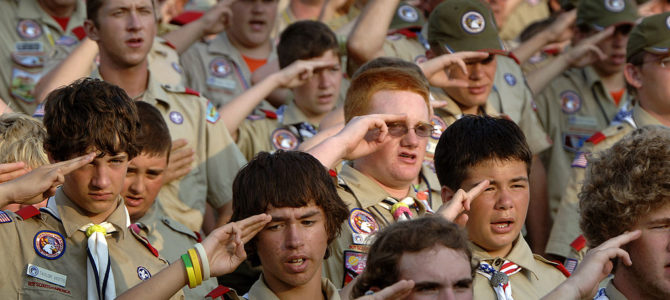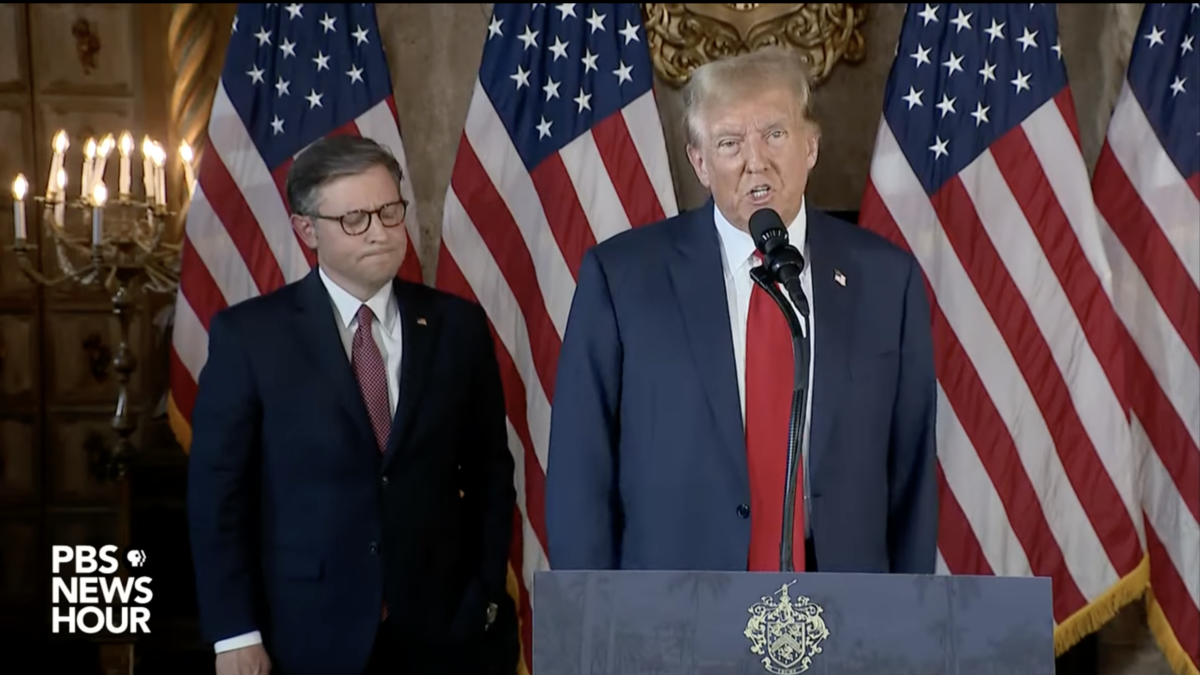
What’s left of the Boy Scouts of America (now operating as Scouts BSA) is on the brink of declaring bankruptcy, according to recent news reports. With estimated assets of more than $1 billion, Scouting’s problems go beyond the financial, deep into the problems with America’s civil culture today.
The U.S. Boy Scout movement reached its numerical height in 1969 with 6 million members, in a year with President Richard M. Nixon as honorary head of the Scouts and Eagle Scout astronaut Neil Armstrong stepping out on the moon.
I was a Cub Scout that year, once a week proudly wearing my uniform to Armstrong Elementary School in our Chicago neighborhood, heading to our well-attended den meeting right after school. My liberal Democratic parents signed me up, my dad a World War II veteran supportive of Scouting’s patriotism.
Fast-forward ahead nearly 50 years: Scout membership has dropped toward 2 million. The impending departure of the Latter Day Saints troops this year will drop that total by one-fifth. Our local school district in conservative central Pennsylvania won’t allow promoting Scouting at school. In our college town, many in the woke local elite now despise Scouting as neo-Nazi and white nationalist, despite efforts to change the national movement to please progressives. My son’s local troop closed recently for lack of members, and so did others in the area.
The national organization faces large lawsuits due to alleged cases of sexual abuse as state legislatures change the statute of limitations on such cases. It also faces a lawsuit from the Girl Scouts for poaching on their membership by changing its name recently to Scouts BSA and recruiting girls.
It’s Not Just Financial Bankruptcy
The old American Boy Scouts might as well be filing for moral bankruptcy, having lost both its base and elite cultural capital. What used to be an organization designed to help boys become men has now been re-fashioned in line with the new gnosticism of American culture, accepting LGTBQIA ideology, while abandoning its traditional ascetic position about sex and its opposition to atheism.
Next year’s World Scouting Jamboree in West Virginia reportedly will be the first hosted by the former Boy Scouts of America to make condoms available to participants. A 2016 agreement with the Unitarian-Universalists overrode the group’s membership requirement of belief in God by allowing belief in humanism, contrary to the Scout Oath.
The “bowling alone” syndrome of declining civic groups in the United States, over-scheduling of young people, and the weakening of American family models all played a role. In fact, political scientist Paul Kengor of Grove City College has detailed the history of American communists and cultural Marxists’s efforts to target and subvert Scouting in particular, to help undermine American family life.
Yet it was corporate executives and members of the U.S. political establishment (including Scouting leaders such as Rex Tillerson and Robert Gates) on the national board who with progressive staff members agreed to surrender to pressure to sexualize the organization in recent years, despite an earlier hard-fought U.S. Supreme Court victory by the organization to preserve membership rules. In admitting openly gay members and leaders, accepting transgenderism, then admitting girls, Scouting turned its back on a cultural background of Christian teaching on sexuality going back millennia.
The central issue was not admitting openly LGBTQIA-identifying members and leaders, but redefining the group’s value of freedom as self-expression, rather than self-restraint. The latter was the traditional ethos of Scouting, not shaping boys into open heterosexuals or any other type of -sexuals, in the “Mad Men”/Hugh Hefner mold or anything else.
Turning On Historic Christian Morality
In Scouting in recent decades, physical edginess and “tough” training requirements also were loosened or removed. The values of a culture dedicated to the human person as totally malleable, based on self-will, took hold. Safety and comfort became increasingly the ultimate values.
Such values, which affected Scouting ultimately more because of changes in in its anchoring mainline Protestant and business cultures than leftist subversion, reject an age-old cultural inheritance of the American republic that regarded virtue and self-restraint as the goals of education of young men, to be leaders of a free society and the families that would continue it.
In the wake of the Neo-Chalcedonianism established by the Fifth Ecumenical Church Council in 553, St. Maximus the Confessor in the seventh century articulated the basis for traditional Christian ascetic approaches to identity as a cosmology, not merely morality. It was a synthesis in part of biblical and Greek philosophical traditions. He wrote of how God created man male and female, but also that there was neither male nor female in Christ.
Maximus’ Christian Byzantine Empire had a performative sense of biological and embodied sexual identity of men and women, with also a third gender or sex, that of both eunuchs and ascetics. Virtuous and holy women could aspire to manliness; men could venerate the Mother of God as the best of saints. Self-restrained and grace-filled chastity, engaged in marriage to the oppose sex or to Christ in monastic community, was seen as leading to the fulfillment of human life in oneness with God’s grace—not essentializing sexual passions by objectifying others.
The complementarity of marriage was a living symbol of the relation of humanity in the universal church to God. Biological sexes of male and female were an embodied sacred iconography to be honored and followed, nurturing trans-generational families in which men could learn to be guardians of peace, husbands who would lay down their lives for their families and country.
That is the deep and complex centuries-old basis for a moral initiation into manhood that dimly still underlay the Boy Scout Oath and Law, a distant cultural inheritance.
Setting Boys Adrift In a Mooring-less Culture
Scouts were never a perfect organization. Major problems with sexual abuse and coverups of it show that. They had quasi-Masonic aspects in Order of the Arrow ceremonies and “great Scoutmaster in the sky” language at camp chapel, emerging from an odd crucible of Teddy Roosevelt-style nationalist progressivism and British Empire civics of the early 20th century. Rudyard Kipling’s “Jungle Book” also inspired Cub Scout ranks.
But in the lost world of 1969 working-class Chicago neighborhoods, in the heyday of the Boy Scouts of America, I with many other boys before and since learned valuable lessons from Scouting, and however imperfectly kept respect for the virtues of the Scout Oath and Law tucked away with my old copy of the Scout handbook and Scout pocket knife in later years.
Our eldest son found a home in a small rural troop run by dedicated military and law enforcement veterans. I often went along on camping trips as an adult volunteer leader. It was a great experience and a sad day when the troop closed recently due to dwindling membership.
Our family’s relationship with regular Scouting ended around the time our younger son in fifth grade ran to get his copy of Boys Life magazine in the mail only to throw it aside because it was featuring girls, as if photoshopped into Norman Rockwell Scouting art. He lost his enthusiasm, our eldest lost his home troop, and dad didn’t want to send money to a national organization adrift.
Not just the old Boy Scouts but America may need receivership for moral bankruptcy. Either way, the real shame is that it is that much of a harder path today for many American boys without strong male role models to find their way to the freedom of self-restraint in manhood envisioned in that millennia-old tradition.









